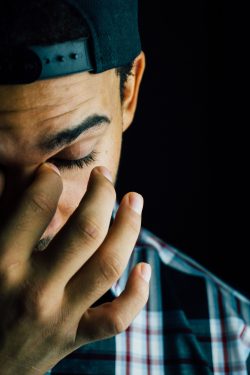Caffeine Disorder
Caffeine is a very popular crystalline xanthine alkaloid that has a potent action as a stimulant drug. In human beings, caffeine acts as a CNS stimulant, and works to temporarily ward off sleepiness and restores alertness as also gives an energy boost. It is the most widely consumed psycho-active drug in the world, but it does not act like other psycho-active substances.
Stimulant Effects
Caffeine is an active agent that can induce the stimulation of the central nervous system and well as the metabolism of the body. It has applications in both medicine and recreation and helps in warding off signs of fatigue and sleep and inducing temporary alertness. Some of the effects of caffeine include increased alertness, faster and better thought processing, enhanced focus, as well as overall better coordination of the general body functions. The amount of caffeine that is required in order to produce the desired results may vary with different people in the basis of the overall size of the body and threshold of tolerance. The effects can initiate less than one hour after caffeine consumption and can last up to five hours when taken in a moderate dose.
Physical Effects
The consumption of caffeine that exceeds 250 mg a day can lead to overdose and a condition which is called “caffeineism”. This condition is the combination of the dependency to the stimulant and a number of other mental and physical signs and conditions that may include irritability, agitation, nervousness, insomnia, heart palpitations, restlessness and headaches after excessive consumption of caffeine.
Psychological disorders
The psychological disorders that are induced by excessive consumption of caffeine as described by the APA (American Psychiatric Association) in the proposed revision to the DSM-5 have been enlisted as follows.
- Caffeine intoxication
- Caffeine withdrawal
- Caffeine-induced disorder not otherwise specified
In low to moderate doses, caffeine can aid in lowering the levels of depression and anxiety among people. It has also been observed that moderate doses of caffeine can help in decreasing the suicide rate. High doses of the stimulant however can lead to agitation and in rare cases, some form of psychosis and mania. High doses of caffeine can also lead to the development of caffeine induced sleep disorders which presents as frequent bouts of sleep disturbances.
Caffeine can induce both negative as well as some positive effects on the body and its systems. The most prominent alteration occurs on anxiety disorders depending upon the dose of caffeine consumed. When 300mg or more of caffeine is consumed by an individual, it can induce anxiety or worsen any preexisting anxiety disorder. When taken in low doses however, it appears to improve and reduce signs of anxiety and relaxes an individual.
Caffeine Overdose/Caffeine Intoxication
The overdose of caffeine can cause caffeine intoxication which is described as a state of over stimulation of the central nervous system. This condition is commonly known as “caffeine jitters.” The symptoms of this intoxication are similar to those exhibited by the overdose of various other similar stimulating agents.

Restlessness and irritability are symptoms of caffeine overdose.
The symptoms include:
- Insomnia
- Restlessness
- Agitation
- Anxiety
- Increased Urination
- Excitement
- Flushing of the Face
- Twitching of the Muscles
- Disturbances of the Gastrointestinal Functioning
- Irritability
- Depression
- Rapid Heartbeat
- Palpitations
- Fidgeting
- Psychomotor Agitation
In even greater doses, caffeine can result in severe depression, disorientation, mania, hallucinations and delusions, alteration of judgment, different forms of psychosis, disinhibition and a state known as rhabdomyolysis, which is the breakdown or disintegration of the skeletal muscle tissue. Blood, serum and plasma can be monitored for caffeine levels in the body in order to draw a definite diagnosis for poisoning, and also to aid in a medico-legal procedure for a death investigation.
Treatments
The treatment of very severe caffeine overdose or intoxication is usually supportive in which treatment is provided to the immediate symptoms. If the patient’s serum levels of caffeine are very high, then hemodialysis, peritoneal dialysis or hemofiltration needs to be done.
Addiction, Tolerance and Withdrawal to Caffeine
If caffeine is repeatedly used, physical dependence is likely to occur. The addiction to caffeine is very common in people who report severe headaches if they don’t get their morning “caffeine fix” in the form of coffee, tea or other forms such as energy drinks. The stimulatory effects of caffeine also diminish over time, and this makes a person crave even higher amounts of the substance.
Caffeine Withdrawal
For those who consume large doses of caffeine each day, caffeine withdrawal can trigger bouts of anxiety. Caffeine, when taken in moderate doses does not appear to affect or alter the ability to learn to retrieve episodes from memory. It reduces signs of fatigue and sleep, and can improve cognitive functioning of the brain in moderate doses.
Withdrawal Symptoms Include:
- Irritability
- Headache
- Inability to Concentrate
- Insomnia
- Drowsiness
- Pain in Stomach
- Upper Body and Joints
These may actually appear within twelve to twenty-four hours after discontinuation of caffeine. The symptoms usually are at their highest at roughly forty eight hours, and generally last from two to nine days.
References:
http://www.nlm.nih.gov/medlineplus/caffeine.html
DSM-4 Diagnostic and Statistical Manual of Mental Disorders by the American Psychiatry Association





